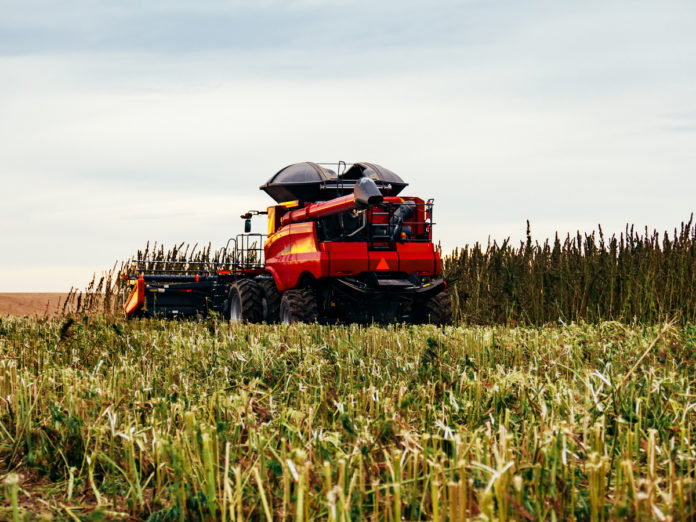The United States Department of Agriculture (USDA) is opening the door for farmers across the country to cultivate hemp.
“At USDA, we are always excited when there are new economic opportunities for our farmers, and we hope the ability to grow hemp will pave the way for new products and markets,” U.S. Secretary of Agriculture Sonny Perdue said. “We have had teams operating with all hands-on-deck to develop a regulatory framework that meets Congressional intent while seeking to provide a fair, consistent, and science-based process for states, tribes, and individual producers who want to participate in this program.”
The USDA program will adopt the policies set by the Agricultural Improvement Act of 2018 (farm bill). Testing requirements and other regulations for hemp farming are expected to be created under the program in the near future.
The 2018 farm bill set a strict 0.3 percent THC cap on all hemp and hemp-derived products. However, it appears the USDA is trying to provide farmers some flexibility as the strict limits can sometimes be difficult to meet.
“USDA recognizes that hemp producers may take the necessary steps and precautions to produce hemp, such as using certified seed, using other seed that has reliably grown compliant plants in other parts of the country, or engaging in other best practices, yet still produce plants that exceed the acceptable hemp THC level,” the agency’s rules stated.
Farmers will not be punished for hemp that tests between 0.3 to 0.5 percent THC but will still be required to discard plants falling into this category. This may alleviate concerns on behalf of farmers who fear criminal penalties for narrowly exceeding the 0.3 percent threshold.
Seth Goldberg, attorney, and partner at Duane Morris LLP, a law firm that works with the cannabis industry, believes the USDA’s program will help clear up some of the legal ambiguity weighing heavily on the hemp and CBD industries since the passage of the 2018 farm bill.
“In the absence of a regulatory framework, hemp producers and hemp product manufacturers have been operating with uncertainty as to the scope of legality of their hemp activities,” Goldberg said in a statement. “While hemp was removed from the Controlled Substances Act in December 2018, the production and distribution under federal law was still tied to the 2014 Farm Bill, which resulted in a state-by-state patchwork hemp industry. The U.S. Domestic Hemp Production Program should provide a greater degree of certainty and uniformity to hemp industry participants, but will still result in state-by-state differences that require careful attention.”
Grant Smith, deputy director of national affairs at Drug Policy Alliance, praised the USDA’s decision to allow hemp workers with previous convictions to take part in the industry.
“We are pleased that, in the final rules, we were able to get the felony conviction ban removed for hemp workers so that they can at least participate in the industry,” Smith said in a statement. “Unfortunately, more work still remains to completely eliminate the ban, so those with felony convictions can—not just work in the industry—but also lead it by being able to obtain licenses of their own. It is inconceivable that those that have been the most harmed by prohibition would then be further inflicted by being barred from taking part in the new legal economy.”


